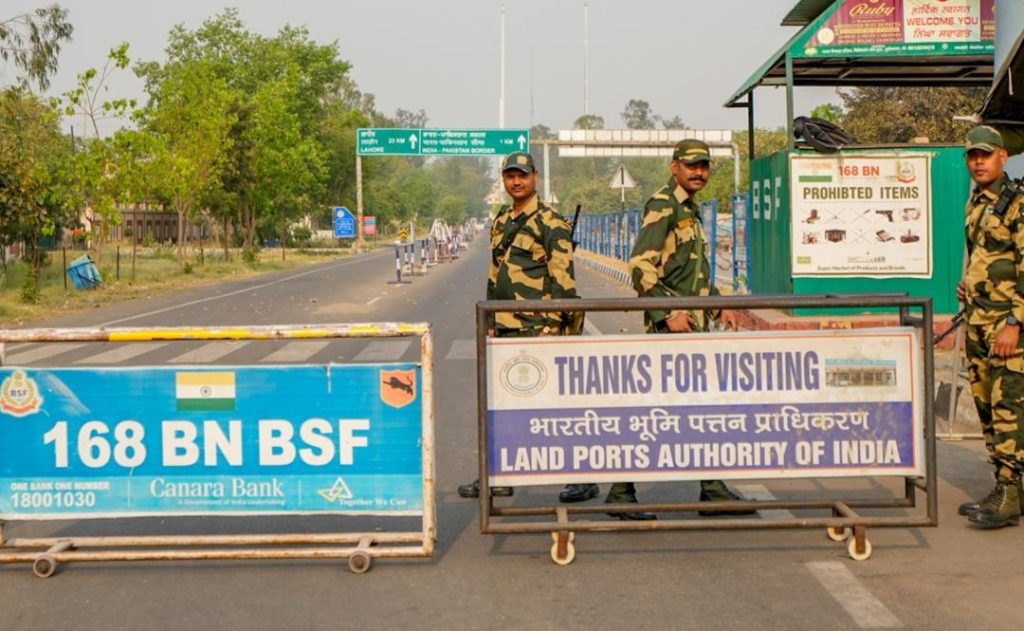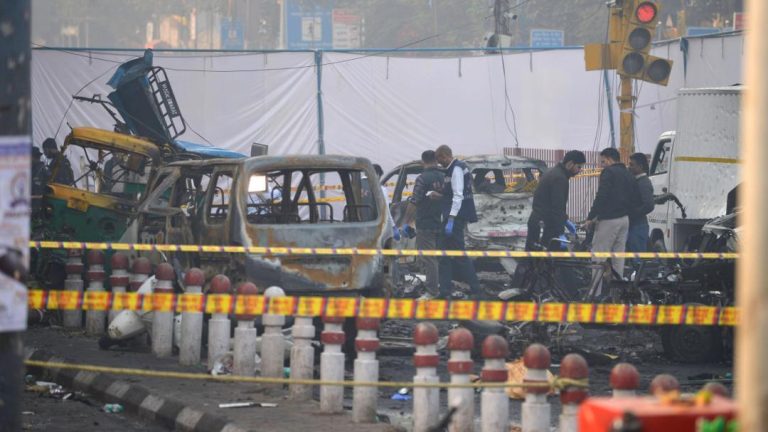
Attari-Wagah Border Between India & Pakistan Completely Closed
The Attari-Wagah border, a significant crossing point between India and Pakistan, has been completely closed, reported PTI on Thursday. This news comes as a surprise to many, as the border has traditionally been a hub of activity, with people from both sides crossing over for various reasons. However, in a sudden turn of events, no person from either side crossed to the other side on Thursday, marking a significant shift in the usual dynamics of the border.
The closure of the border follows a recent development where Pakistan shut the border and stopped accepting its citizens who were deported by India. The mass deportations were a direct response to the Pahalgam terror attack, in which 26 tourists were killed. The attack was carried out by terrorists, and India has been working tirelessly to identify and bring to justice those responsible.
The closure of the Attari-Wagah border is a significant development in the already tense relations between India and Pakistan. The border has been a flashpoint in the past, with frequent clashes and tensions between the two nations. However, in recent years, there have been efforts to improve relations and increase dialogue between the two countries.
The Attari-Wagah border is one of the most significant crossing points between India and Pakistan, with thousands of people crossing over every day. The border is a symbol of the complex and often fraught relationship between the two nations. The closure of the border will undoubtedly have significant implications for trade, tourism, and the daily lives of people on both sides.
The decision to close the border was taken by the Pakistani authorities, who cited security concerns as the reason. The Indian government has not made any official statement on the matter, but it is likely that the closure of the border will be met with resistance. The Indian government has been vocal in its criticism of Pakistan’s handling of cross-border terrorism, and the closure of the border may be seen as a response to these criticisms.
The closure of the border will undoubtedly have significant economic implications for both countries. The border is an important trade route, with goods worth millions of dollars crossing over every day. The closure of the border will also affect the thousands of people who rely on the border for their livelihoods. Tourists, who have been flocking to the region in recent years, will also be affected, as the closure of the border will limit their ability to travel to and from the region.
The Attari-Wagah border has a long and complex history. The border was established in 1947, when India and Pakistan were partitioned. Since then, the border has been a source of tension and conflict between the two nations. The border has been the site of several clashes and skirmishes, and there have been numerous attempts to breach the border.
The closure of the border is a significant development, and it is unclear when it will be reopened. The Indian government has been working to improve relations with Pakistan, but the recent terror attack has put a significant strain on these efforts. The closure of the border is a reminder of the complex and often fraught relationship between India and Pakistan.
In conclusion, the closure of the Attari-Wagah border is a significant development in the already tense relations between India and Pakistan. The border has been a flashpoint in the past, and the closure of the border will undoubtedly have significant implications for trade, tourism, and the daily lives of people on both sides. The decision to close the border is a response to the recent terror attack, and it is unclear when it will be reopened.






